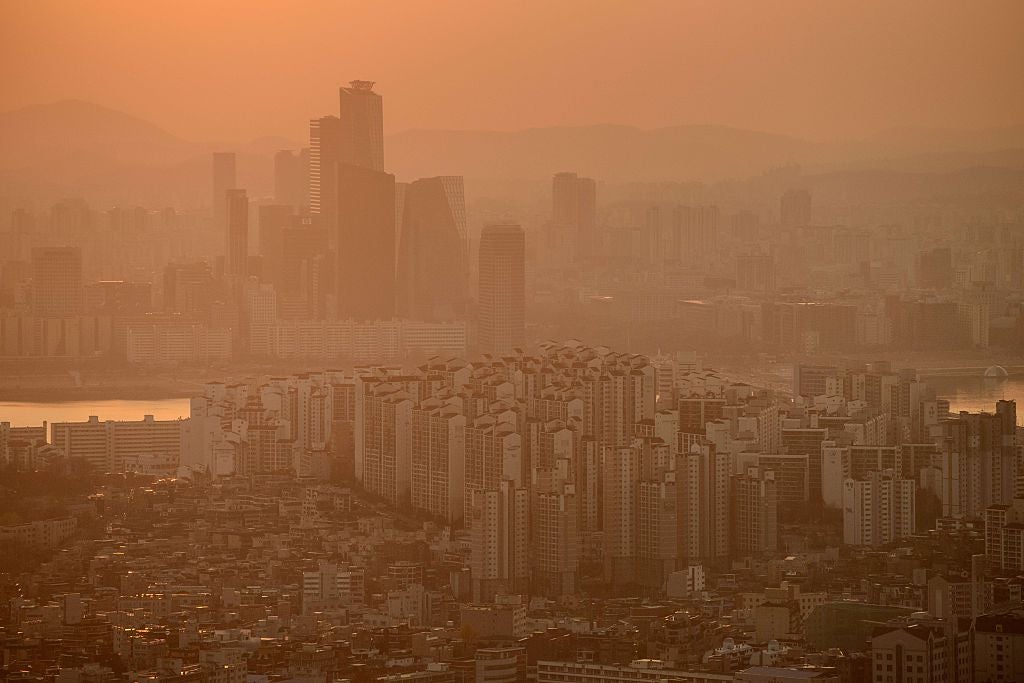Seoul offers free public transport to tackle excessive air pollution
The move is in response to a thick layer of smog in South Korea

Emergency measures have been introduced in the South Korean capital of Seoul to combat a thick layer of smog that is covering the city.
Public transport is free during rush-hour as of Monday 15 January, in the hopes that car use will be reduced.
The measures were introduced after the average daily density of ultra-fine dust hit more than 50 micrograms per cubic metre, an amount that is considered harmful.
South Korean officials used the same tactics for the first time last year when Seoul’s air quality index reached levels in excess of 179 micrograms per cubic metre. This put it only behind New Delhi in India in terms of air pollution.
Seoul’s poor air quality is thought to be a result of the country’s use of coal and diesel, compounded by smog from nearby China.
Other measures to reduce the current levels of air pollution include limitations of car use for public employees, the closure of 360 parking lots and a reduction in construction work on government-funded projects.
All policies should only be in place for a few days.
This comes after The Independent reported in November 2017 that New Delhi announced a ban on lorries after high levels of air pollution triggered a public health emergency.
The Indian capital was cloaked in thick smog, forcing thousands of schools to close.
Levels of PM2.5 pollutants in New Delhi hit 1,000mg; to put this in context, 300mg is considered a highly dangerous amount. Pollution levels in the city had therefore reached 30 times higher than the World Health Organization considers safe.
“The situation as it exists today is the worst that I have seen in my 35 years staying in the city of Delhi,” Arvind Kumar, a lung surgeon at Sir Ganga Ram Hospital, told NDTV. “As a doctor, I have no problem saying that the situation today is a public health emergency. If you want to protect people, we should be ordering the evacuation of Delhi. Closing down all schools. Closing down all offices.”
Join our commenting forum
Join thought-provoking conversations, follow other Independent readers and see their replies
Comments
Bookmark popover
Removed from bookmarks